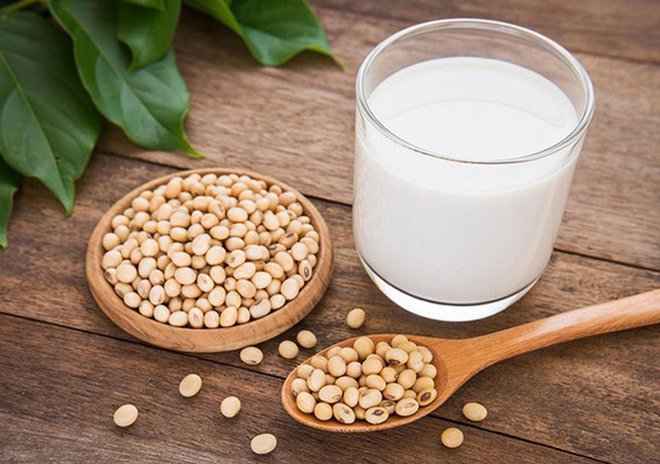Lactose Intolerance: Frequently Asked Questions?
This is an automatically translated article.
The article was written by Master, Doctor Ta Que Phuong - Department of General Internal Medicine - Vinmec Times City International General Hospital.
Lactose intolerance is a condition that makes it difficult for your body to digest milk and foods made from milk (called dairy products). If you are lactose intolerant and you eat dairy products, you may experience diarrhea, abdominal pain, and bloating.
1. What is lactose intolerance?
Lactose intolerance can affect anyone. But it's most common in Native Americans, Asians, and blacks.
In people with lactose intolerance, the body makes a protein called an "enzyme" that breaks down lactose, the main sugar found in milk. In people with lactose intolerance, the body doesn't make enough enzymes or the enzymes don't work as well as they should. Also, some infections, such as yours with food poisoning, can damage enzymes. But if that happens, the problem will usually go away within a few weeks. Fortunately, people who are lactose intolerant can take enzyme supplements to solve their problem.
In people with lactose intolerance, the body makes a protein called an "enzyme" that breaks down lactose, the main sugar found in milk. In people with lactose intolerance, the body doesn't make enough enzymes or the enzymes don't work as well as they should. Also, some infections, such as yours with food poisoning, can damage enzymes. But if that happens, the problem will usually go away within a few weeks. Fortunately, people who are lactose intolerant can take enzyme supplements to solve their problem.
2. What are the symptoms of lactose intolerance?
Symptoms only occur after you eat dairy foods. These may include:
Abdominal pain (usually around or below the navel) Bloating (feeling like a bloated stomach) Diarrhea (usually loose, frothy, and watery stools) Vomiting (this happens mainly in the bar) youth)
Abdominal pain (usually around or below the navel) Bloating (feeling like a bloated stomach) Diarrhea (usually loose, frothy, and watery stools) Vomiting (this happens mainly in the bar) youth)
3. Is there a test to check for lactose intolerance?

Đau bụng, đầy hơi là triệu chứng phổ biến của không dung nạp lactose
Yes, there are 2 ways to test for lactose intolerance. One is a breath test, and the other is a blood test. Breath tests are more common.
Your doctor will tell you how to prepare for your test. You will not be able to eat or drink anything for several hours before the test. Also, you may have to change your medications or stop smoking for a while before the test.
Lactose hydrogen breath test - For this test, you drink a liquid that contains lactose. Then you breathe into a special machine every 30 minutes. The meter measures the amount of hydrogen you exhale. People who are lactose intolerant breathe out more hydrogen than usual. Lactose tolerance test - For this test, you drink a liquid that contains lactose. Your doctor will take a sample of your blood at the start of the test and again 1 and 2 hours later. If your blood is low in sugar after you drink lactose, it means you may have lactose intolerance.
Your doctor will tell you how to prepare for your test. You will not be able to eat or drink anything for several hours before the test. Also, you may have to change your medications or stop smoking for a while before the test.
Lactose hydrogen breath test - For this test, you drink a liquid that contains lactose. Then you breathe into a special machine every 30 minutes. The meter measures the amount of hydrogen you exhale. People who are lactose intolerant breathe out more hydrogen than usual. Lactose tolerance test - For this test, you drink a liquid that contains lactose. Your doctor will take a sample of your blood at the start of the test and again 1 and 2 hours later. If your blood is low in sugar after you drink lactose, it means you may have lactose intolerance.
4. Should you see a doctor?
Have. If you think you may be lactose intolerant, tell your doctor. He or she may ask you questions to make sure there are no other problems.
5. How is lactose intolerance treated?
Treatment varies depending on the severity of the problem. But in general, treatment can include:
Eat less dairy foods Find sources of nutrients that aren't dairy (such as calcium and vitamin D ) and protein Take an enzyme supplement that will help you break down foods from milk
Eat less dairy foods Find sources of nutrients that aren't dairy (such as calcium and vitamin D ) and protein Take an enzyme supplement that will help you break down foods from milk

Để điều trị tình trạng không dung nạp lactose, bạn cần hạn chế tiêu thụ thực phẩm từ sữa
6. How do you reduce the amount of dairy you eat?
You can start by cutting back but don't stop foods that you know contain dairy. Dairy foods should be consumed with meals. Dairy foods include milk, ice cream, ice cream, yogurt, cheese, and butter.
You talk to a dietitian to find out which foods have lactose. A dietitian can also make sure you get enough calcium and vitamin D in your diet.
If you are really sensitive to dairy foods or lactose, you will also need to read the labels on everything you eat. Milk or lactose is sometimes added to foods that you might not suspect, such as cereals, instant soups, and salad dressings. Check a food's ingredient list for anything that might suggest lactose. Look for the following words:
Milk, "dairy by-products", "dry milk powder" and "dry milk powder" Lactose Whey (wheat is milk that has been sour) Although some drugs are manufactured With lactose, most people with lactose intolerance can handle very small amounts in the drug.
You talk to a dietitian to find out which foods have lactose. A dietitian can also make sure you get enough calcium and vitamin D in your diet.
If you are really sensitive to dairy foods or lactose, you will also need to read the labels on everything you eat. Milk or lactose is sometimes added to foods that you might not suspect, such as cereals, instant soups, and salad dressings. Check a food's ingredient list for anything that might suggest lactose. Look for the following words:
Milk, "dairy by-products", "dry milk powder" and "dry milk powder" Lactose Whey (wheat is milk that has been sour) Although some drugs are manufactured With lactose, most people with lactose intolerance can handle very small amounts in the drug.
7. Which enzyme supplement should you use?
There are many enzyme supplements to choose from, including Lactaid (tablets or liquid), Lactrase, LactAce, Dairy Ease, and Lactrol. You should supplement right before you start eating. If you forget, you can take it with a meal, but it may not be as effective.
It is important to know that each product works slightly differently for each person. Plus, none of them can break down every last bit of lactose, so some people still have symptoms even with enzyme supplements.
It is important to know that each product works slightly differently for each person. Plus, none of them can break down every last bit of lactose, so some people still have symptoms even with enzyme supplements.
8. Should you take a calcium or vitamin D supplement?
That depends on whether you avoid dairy foods altogether. If you do, your doctor may recommend a calcium supplement. They may also test your vitamin D levels to decide if you should take a supplement.
9. Is lactose intolerance essentially a food allergy?
No. There are people who are allergic to milk and dairy foods. But the symptoms of a milk allergy are often different from those of lactose intolerance. In the case of an allergy, the body reacts to the protein in milk, not to the sugar. Plus, allergies involve the body's infection-fighting system, known as the immune system.
Please dial HOTLINE for more information or register for an appointment HERE. Download MyVinmec app to make appointments faster and to manage your bookings easily.
This article is written for readers from Sài Gòn, Hà Nội, Hồ Chí Minh, Phú Quốc, Nha Trang, Hạ Long, Hải Phòng, Đà Nẵng.





